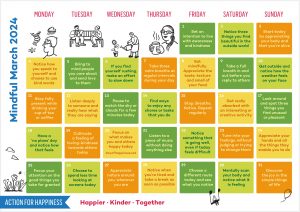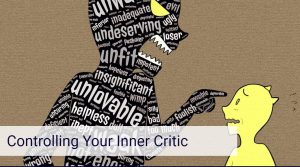Good Morning and welcome to March,
This is actually the blog for Feb and March !!
Its been an incredibly busy time, not just work but life in general. DIY has been a big part – I’m so pleased to have taken off all the wall paper in the house ready for painting, its been a mission but I got there in the end !!
Not long to wait now until the first day of Spring on 20th March and then only a couple of weeks later the clocks spring forward, I can’t wait. It’s been so wet hasn’t it but this morning it’s cold and frosty, however as I sit writing to you the sun coming through the window is warm, the birds are feeding on the sunflower seeds and the sparrows are chirping away. Later on I hope to get out in the garden to plant the forget-me-nots I was given.
On the tough cold mornings I remember that the daffodils and crocus are out and I can smell the winter honeysuckle, and that the hedgehog is all tucked up safe and warm in his house. Our dog is eager to get out for his walk so I use this as a warm up for a short run. I challenge myself to notice things I don’t normally notice using my senses, what I see, smell, hear etc its quite surprising, give it a try !!
This lead me to remember a blog that a colleague Trevor Eddolls wrote about feeling overwhelmed and coping. I hope you find it interesting and helpful.
Overwhelmed? What you can do.
Just recently, a number of people have been saying how overwhelmed they feel with work or family life, or many other things. They use phrases like, “I just don’t have the capacity to …”. It’s as though they have the view that they have a fixed amount of time, or energy, or, perhaps, intelligence, to do any more tasks. It’s all becoming too much. So, where does this feeling of being overwhelmed come from, and what can people do about it?
Let’s start by describing what it feels like to be overwhelmed. Typically, it’s an emotional response to a stressful situation that is hard to handle at that time. It also often comes with a physical response resulting in an inability to think clearly and plan how to deal with the situation. Those physical symptoms can include increased heart rate, shallow and rapid breathing, and sweating – all things usually associated with a fight-or-flight response. And the trigger for the response can be too many tasks or responsibilities and not enough time; fearful situations occurring in the near future, for example giving a presentation or going for a job interview; life changes like starting a new job; and traumatic events like the loss of a loved one. Often, every time you think of what’s going to happen, the feelings get worse.
People often feel that life is getting out of their control – they lack agency – they are pawns in someone else’s game of chess. And they can’t see a way to get back control of their life. And this can lead to procrastination, where a person does less-and-less to deal with the situation.
Feeling overwhelmed can result in in people finding it difficult to take care of themselves. Because they are focused on what’s overwhelming them, they stop doing the things they enjoy and the things they need to do, like booking a dentist appointment. People can become isolated and lonely because they stop seeing the friends. And constantly thinking about the overwhelming issue can lead to people feeling fatigued, sluggish, and unmotivated, It can feel like you have brain fog when you think about the problem because you can’t find a solution.
What can you do about it? I would recommend seeing a solution-focused hypnotherapist. They will explain to you what’s happening in your brain and your body when you are feeling overwhelmed. It’s quite common – lot’s people experience it. They will also help you to come up with a plan to take back control of your life. They will help you to identify the ‘stressor’ that is causing you to feel overwhelmed and ask you how you have coped in the past. They will ask you about times when you don’t feel overwhelmed. What’s different. And, importantly, they will ask you how you would like to act if you didn’t feel overwhelmed.
Your therapist will suggest some techniques that you can use to help you deal with these feelings of overwhelm. They may suggest simple breathing techniques like 7-11 breathing, where you breath out for longer than you inhale, or square breathing, where you inhale, hold, exhale, and hold for the same length of time. Concentrating on your breathing is a great way of calming down and feeling more in control. Each round of breathing must be carried out a number of times until you feel calm again.
Simply being in a different situation can change your thinking. If your thoughts are overwhelming you in one room, walk into another room, or, better still, step out into the garden, or go for a walk in the wood or on the beach, if that’s a possibility. The feelings will subside, and you are back in control.
Use a to-do list. If there are so many things that you need to do, write them down on a piece of paper. You can then tick them off as you do them, but you can stop needing to remember them and let your mind think of something else. You might also be able to delete some items from the list because you don’t really need to do them. And other items may not be very important and can be left until much later – or maybe someone else can do them.
And remember to say ‘no’ when people try to add to your workload. Or, if it’s your boss, ask them which task you should stop working on so that you can take on this new one? That makes it their problem rather than yours. Or, you can simply ask for more time to get everything done. Or ask for help if there is an impending deadline.
Be kind to yourself. Remember that nothing lasts forever, and these feelings of being overwhelmed will pass. Think about things that used to give you pleasure and do them. Make time to see friends and family.
And, of course, the tremendous power of trance to help relax someone, will make you feel so much better after each hypnotherapy session.
I hope you have enjoyed this blog, if you feel that you may like some support using solution focussed hypnotherapy give me a call on 07516 962361,
Enjoy the month of March,
Best wishes, Louise














 9)
9) 








 Why does this time ‘off’ feel so golden? It basically comes down to routine. When we are in work mode, our brains become very streamlined so they can achieve more. Routine engages automatic pilot mode which aids productivity. We go through the motions when in ]work mode’, eg get out of bed, clean teeth, put on work clothes. These activities are hardly even noticed because they are so embedded into our daily lives. You travel to work, sit in your office, make a coffee, and read emails. Again, unless something is unusual, these moments are easily forgotten. You chat to colleagues, clients, or customers, with routine conversations of “How are you?” “Fine thanks, you?”, “Doing anything nice on the weekend?”
Why does this time ‘off’ feel so golden? It basically comes down to routine. When we are in work mode, our brains become very streamlined so they can achieve more. Routine engages automatic pilot mode which aids productivity. We go through the motions when in ]work mode’, eg get out of bed, clean teeth, put on work clothes. These activities are hardly even noticed because they are so embedded into our daily lives. You travel to work, sit in your office, make a coffee, and read emails. Again, unless something is unusual, these moments are easily forgotten. You chat to colleagues, clients, or customers, with routine conversations of “How are you?” “Fine thanks, you?”, “Doing anything nice on the weekend?”

 Sleep is often one of the first things that is affected when we feel stressed, anxious or life is just not going how we’d like and can at times feel overwhelming.
Sleep is often one of the first things that is affected when we feel stressed, anxious or life is just not going how we’d like and can at times feel overwhelming.